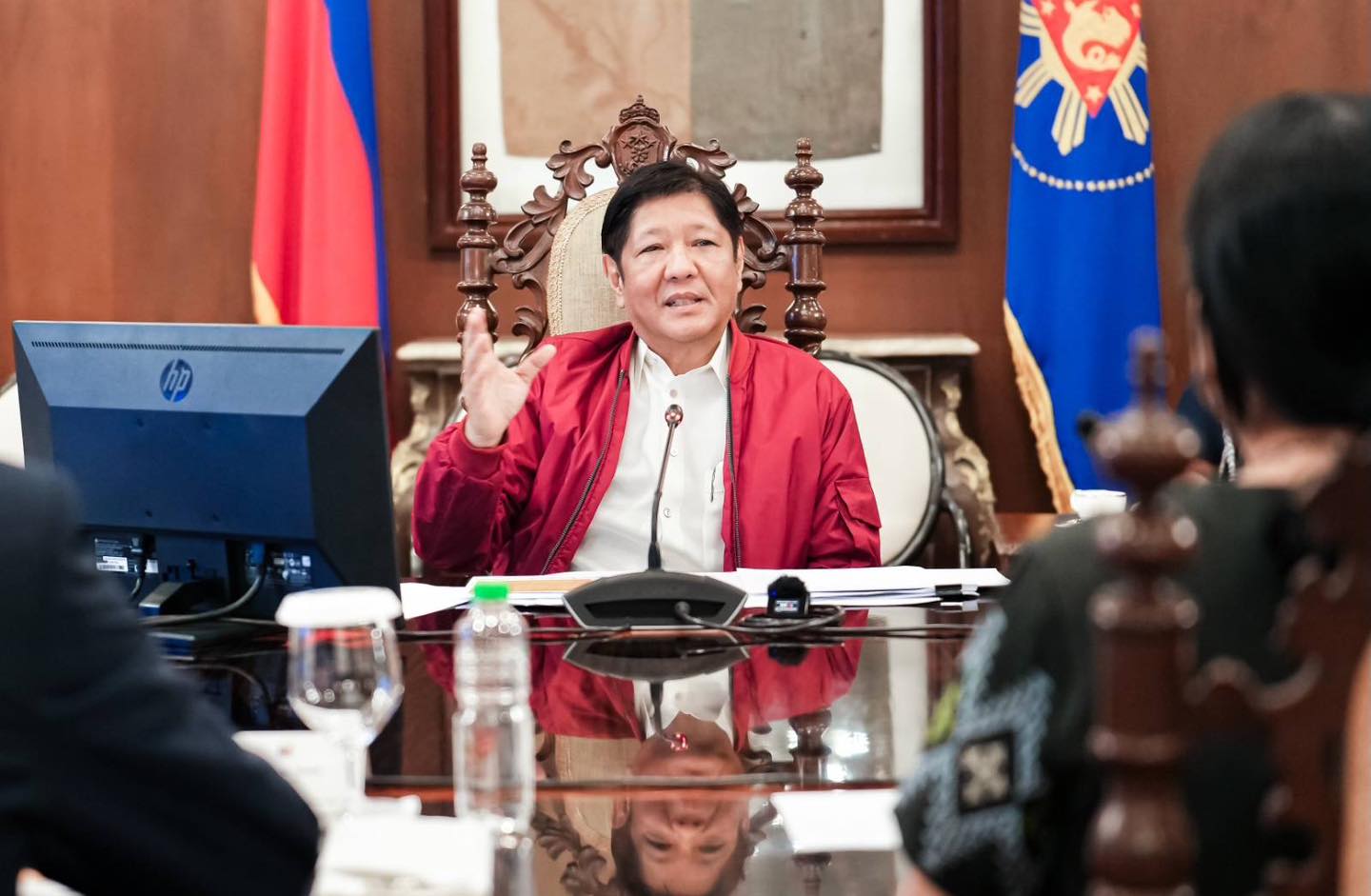President Marcos has ordered the reorganization of the National Security Council (NSC), removing the vice president and living former presidents as members of the council.

Marcos ordered the NSC's reorganization through Executive Order No. 81 dated Dec. 30, 2024.
The President said in the three-page order there is a need to guarantee that the NSC remains capable in addressing security concerns amid evolving challenges, thus the reorganization.
"[T]here is a need to further guarantee that the NSC remains a resilient national security institution, capable of adapting to evolving challenges and opportunities both domestically and internationally, and to ensure that its council members uphold and protect national security and sovereignty, thereby fostering an environment conducive to effective governance and stability," the EO read.
With the reorganization, the NSC executive committee shall now be composed of the President, Executive Secretary, Senate President or his representative, House Speaker, National Security Adviser, and secretaries of Department of Foreign Affairs (DFA), Department of Justice (DOJ), Department of National Defense (DND), and Department of the Interior and Local Government (DILG).
In a statement on Friday, Jan. 3, Executive Secretary Lucas Bersamin justified the reorganization of the council saying it aims to "reorganize and streamline the membership of the NSC."
He also defended the decision to remove the vice president as member of the council, stressing that the vice president is "not considered relevant to the responsibilities" of the council's membership.
"At the moment, the VP is not considered relevant to the responsibilities of membership in the NSC. Nonetheless, when the need arises, the EO reserves to the President the power to add members or advisers," Bersamin said.
Under the EO, the council will still be headed by the President as the chairperson and is composed of the Senate president, House Speaker, Senate president pro-tempore, three deputy speakers designated by the House Speaker, Senate's Majority and Minority Floor leaders, and House Majority and Minority Floor leaders.
Other officials included in the council are chairpersons of the Senate Committee on Foreign Relations, Senate Committee on National Defense and Security, Peace, Unification and Reconciliation, Senate Committee on Public Order and Dangerous Drugs, House Committee on Foreign Affairs, House Committee on National Defense and Security, House Committee on Public Order and Safety.
The Executive Secretary, National Security Adviser, secretaries of DFA; DOJ; DND; DILG; Department of Labor and Employment (DOLE); and Presidential Communications Office (PCO), Chief Presidential Legal Counsel; Presidential Legislative Liaison Office head, and other government officials and private citizens as the President may appoint or designate from time to time are also included in the council.
The director-general of the National Intelligence Coordinating Agency, the chief of Staff of the Armed Forces of the Philippines (AFP), the chief of the Philippine National Police, and the director of the National Bureau of Investigation (NBI) shall attend the meetings of the council as may be necessary to advise and assist in its deliberations.
The governor of the Bangko Sentral ng Pilipinas may also be invited to participate in the NSC.
NSC's executive committee was also reorganized and shall now composed of the President, Executive Secretary, Senate President or his representative, House Speaker, National Security Adviser, and secretaries of DFA, DOJ, DND, and DILG.